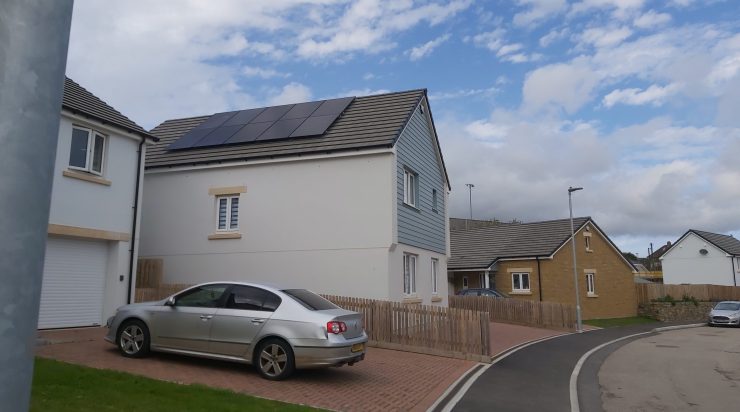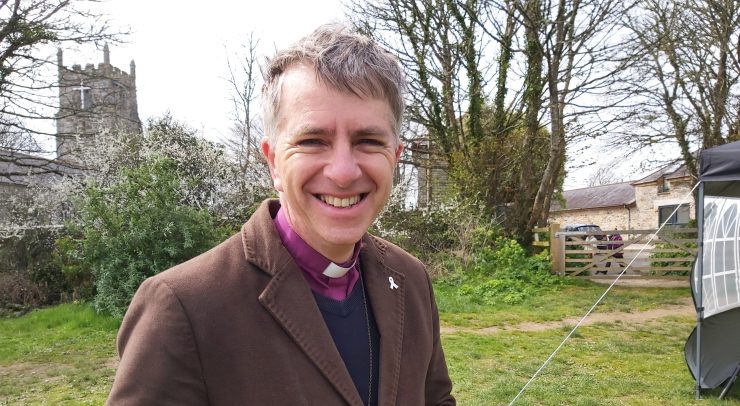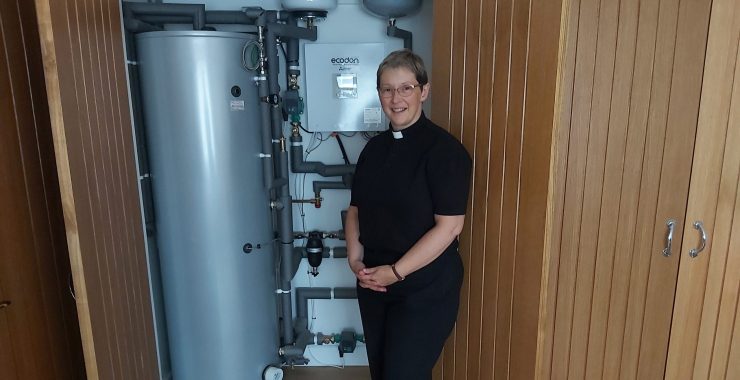Putting our houses in order
The Diocese of Truro has announced plans to meet its commitment to the Church of England’s target of net zero carbon emissions by 2030.
The diocese’s environmental strategy is to “cherish creation, cut carbon and speak up”. Its team already advises parishes on energy efficiencies which can help reduce emissions, save money and even in some cases produce power which can then be sold on to the national grid to generate incomes to support their work.
The diocese is also planning to offer higher-emitting churches the opportunity for energy audits, and has recently secured funding from the Church of England to appoint two support officers to help churches and church schools cut their carbon footprints, in order to reach national net zero targets within the next seven years.
As well as supporting parishes in their work to meet those targets, the Diocese of Truro is practising what it preaches and is now consulting on a plan to commit a major investment to complete environmental upgrades to clergy housing.
This is part of a broader investment proposed to underpin the renewal of the church in Cornwall over a ten-year period, a strategy which will also provide significant additional funding for mission and ministry, and which will be considered by a meeting of the Diocesan Synod in November.
Diocesan Secretary Simon Cade says: “My own experience in ministry tells me that getting clergy housing right is vital for supporting parish life – the right house in the right place, well maintained, and always remembering that these are first and foremost family homes. They need to be great places to live and to support the needs of modern ministry. Our carbon net zero work should keep energy bills down for our hard-working clergy while making sure that they are places of hospitality and welcome that are warm and efficient.”
Going green
These green upgrades are set to include the installation of air source heat pumps, insulation to walls, floors and windows, and solar panels on rooftops, as well as improvements to hot water systems and thermostatic controls, in order to enhance the energy efficiency of these properties in line with statutory requirements already signalled by the government. They will also afford significant cost savings to members of the clergy, many of whom are still reliant on oil boilers for their heating.
This strategy is designed to future-proof the diocese’s properties (including historic and listed buildings) in terms of its legal and regulatory compliance with both environmental and safety obligations.
Michael Greet of Savills, the chartered surveyors that manages the diocese’s properties, emphasizes that it’s crucial to initiate this process at this point to enable retrofitting to these properties during periods of vacancy over the next seven years.
“If properties aren’t addressed during their next clergy vacancies, while people aren’t in situ, then we wouldn’t have the opportunity to complete this work to deliver all available energy efficiency measures by 2030,” he says. “There are also legislative requirements outside the ecclesiastical world in relation to minimum energy efficiency levels for properties. If the diocese failed to address this, then legislation could impose those requirements.”
Creation Care
This plan is also seen as key to the environmental strand of the Diocese of Truro’s work towards the Church of England’s core mission.
“If we can’t lead on this, who can?” asks Kate Cortez, head of operations at Church House in Truro. “This is part of our legacy to future generations.”
Kate emphasizes that, alongside its commitments to social justice, faithful service and support for those in need, the fifth of Anglicanism’s five marks of mission – the mission statement first developed by the Church in 1984 – pledges to “strive to safeguard the integrity of creation and sustain and renew the life of the earth”.
The Right Reverend Hugh Nelson, Bishop of St Germans, agrees.
“The effects of climate change aren’t a problem for someone else tomorrow, but a challenge for us today,” says Bishop Hugh. “There are already people and communities around the world suffering terribly from climate change, and we increasingly see the effects here as well. This work for our vicarages is part of our commitment to cherish creation, cut carbon and speak up, and I am proud of the way we are putting creation care at the heart of our mission.”
The Reverend Heidi Huntley is Rural Dean of Kerrier. Based in Helston, she lives in one of the church properties that has already been fitted with an air source heat pump, air ventilation, double glazing, underfloor heating and rooftop solar panels, as part of a pilot scheme launched by the diocese.
She’s hugely enthusiastic about the ventilation system that prevents the build-up of mould in the house, and the efficient underfloor heating that, even when set on low, generates a good ambient warmth on a cold day, as well as solar panels to help power the vicarage’s electrical appliances.
She believes her house is as good as any vicarage she’s ever known.
“The rewards of living in an eco-friendly house are many,” she says. “And it’s good to know that we’re doing what we can to help the environment – and it’s very comfortable and convenient too.”








